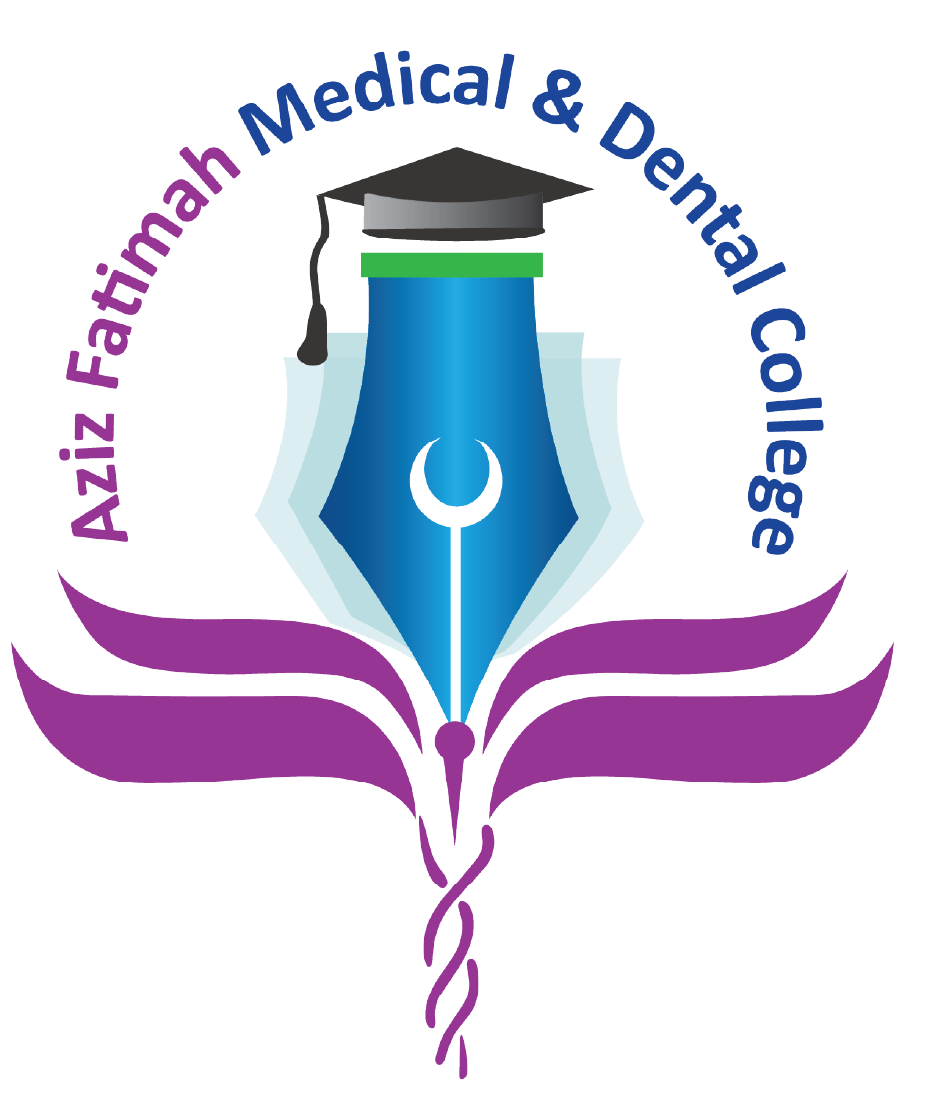AFMDC Competencies and outcomes for Medical Graduate
The Competencies of medical graduate of Aziz Fatimah Medical and Dental college are outlined in accordance to the Seven Star doctor as outlined by PM&DC and is developed in alignment with Mission and Vision.
AFMDC OUTCOMES
Skillful

Competent medical graduates of AFMDC require sound clinical skills grounded in knowledge and skills in patient-centered care
- Take a focused history and identify the patient’s risk factors with appreciation of the bio-psychosocial model.
- Perform physical and mental state examination(s) in order to identify specific problems and differentiate from others, and identify nonconformity to anatomical or physiological configurations.
- Formulate a provisional diagnosis with justification, and two to three likely differential diagnoses.
Knowledgeable

This embodies knowledge of basic medical and clinical sciences required for the practice of medicine
- Differentiate between normal and abnormal structure and functions of the body
- Differentiate between normal and abnormal molecular, cellular, biochemical, and physiological and pathophysiological mechanisms
- Differentiate between normal and abnormal human behavior
- Apply evidence-based medicine concepts to provide best possible cost-effective care
Critical Thinker

The ability to critically evaluate existing knowledge, technology and information, and to be able to reflect on it
- Use of information obtained and correlated from different sources
- Critical data evaluation (interpret, analyze, synthesize, evaluate to form decisions)
- Dealing effectively with complexity, uncertainty and probability in medical decision-making, reflecting on the latest evidence and its application to the health problem
- Regular reflection on their own practice
Community Health Promoter

To deal with problems of population-based primary health care, including health promotion and disease prevention
- Relate effects of life-styles and genetic, demographic, environmental, social, cultural economic, psychological and determinants of health and illness on populations
- Evaluate national and global trends in morbidity and mortality of diseases and injuries of social significance, the impact of migration, environmental factors on health and the role of national and international health organizations on health status
Professional and Ethical

Medical and dental graduates should be able to demonstrate professional values of self and professional accountability
- Demonstrate professional values of self and professional accountability, honesty, probity, and ethics without discrimination on the basis of age, gender, religion or beliefs, colour, race, ethnic or national origin, culture, disability, disease, lifestyle, marital or parental status, sexual orientation and social or economic status
- Strive for constant improvement of self and health delivery systems
Lifelong Learner

Medical graduates must continually acquire new scientific knowledge and skills to maintain competence
- Demonstrate continuous learning based on regular self-assessment and seeking peer feedback.
- Undertake continuous self-directed study and participate in credited continuous medical education activities up to re-licensure and re-certification.
- Manage information effectively to use it for efficient and effective self-learning, medical problem-solving, and decision-making.
Researcher

Medical and dental graduates are expected to demonstrate constructive criticism, a spirit of enquiry, creativity and a research- oriented attitude
- Identify a researchable problem and critically review literature.
- Formulate hypotheses.
- Identify the appropriate research design(s) in Epidemiology and analytical tests in Biostatistics to answer the research question.
- Collect, analyze, and evaluate data, and present results where possible.
- Demonstrate ethics in conducting research and in ownership of intellectual property.
